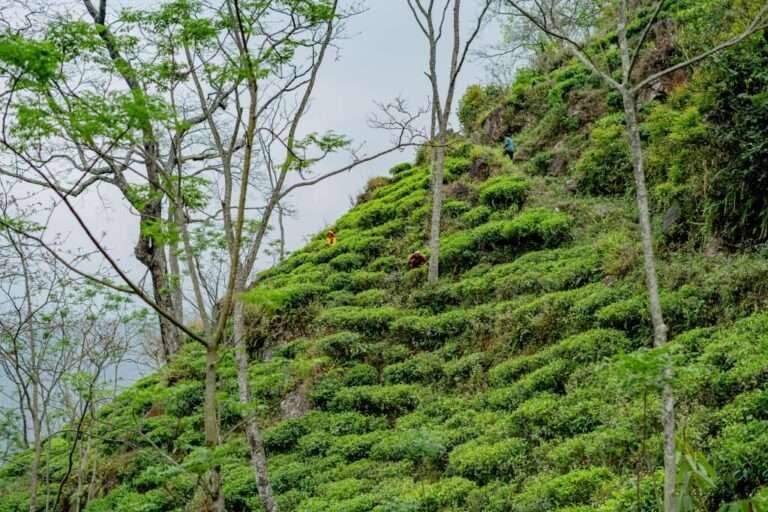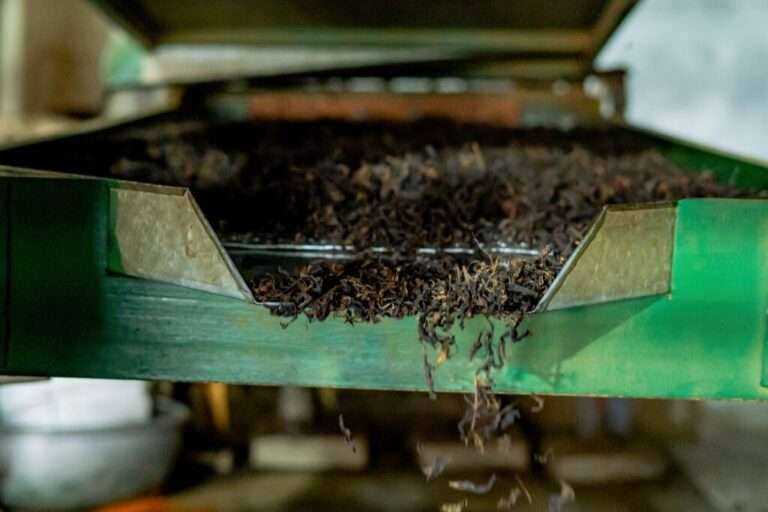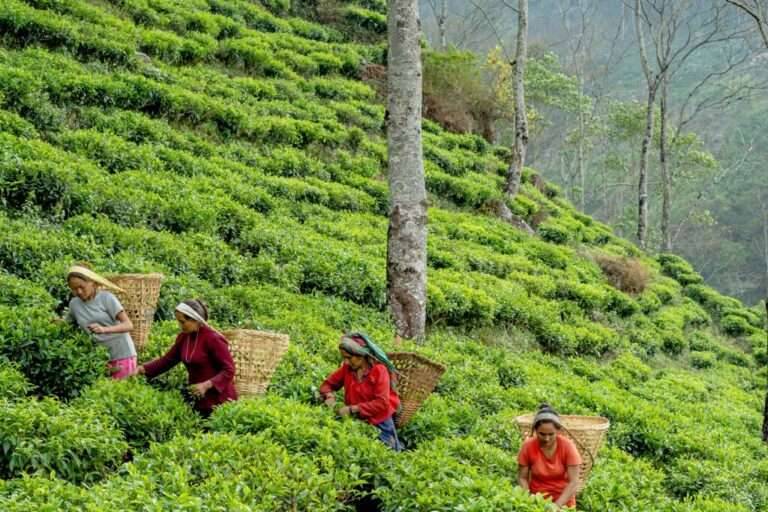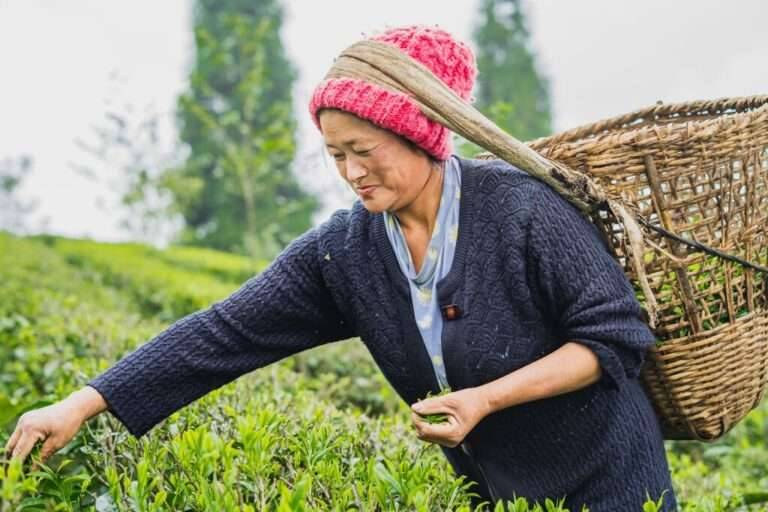✓ Free home delivery from €75 (BE) ✓ Delivered within 2-3 working days
Kanchanjangha Tea Estate

Kanchanjangha Tea Estate
Kanchanjangha Tea Estate and Research Centre (KTERC) is located at the foot of Mount Kanchenjunga, the third highest mountain in the world, in the village of Phidim in Nepal. It borders the famous tea regions of Darjeeling (India) and Illam (Nepal). As a result, the village enjoys the best of both worlds as well as the pristine climatic conditions of the Himalayas. Some unique teas are produced here thanks to its high altitude (1300 – 1800 metres), pollution-free environment and pristine weather.
HISTORY OF THE ESTATE
At the age of 15, Mr Deepak Prakash Baskota, from the village of Phidim, visited some areas in Darjeeling (India). He was deeply impressed by the local tea gardens and the high standard of living of the tea workers. He returned to his village in Nepal, determined to improve the living conditions and basic needs of the people in his village. Years later, and without any prior knowledge about tea, he sought help from specialists in Darjeeling, brought tea seeds and clones and started a new farming technique now known as ‘Organic Farming’. Thus, in 1984, the Kanchanjangha Tea Estate and Research Centre, the first organically certified tea garden in Nepal, was born, thanks to Mr Deepak Prakash Baskota.


SOCIAL ENTERPRISE
KTERC, meanwhile, is not only a typical tea factory, but also a social enterprise. Here, they go beyond just creating a sustainable tea growing society. The farmers here are not only employees, they can also become owners through a cooperative model. Today, more than 150 farmers are employed directly and 400 indirectly by KTERC. More than 70% of the workforce is made up of women.
Farmers receive free housing, along with all basic amenities, and subsidies on food supplies. KTERC continuously raises farmers’ living standards, they fight against discrimination and children receive education.
SUSTAINABILITY
KTERC is also at the forefront of sustainability. Here are a few examples:
- They build sustainable eco-houses that have a dual purpose. On the one hand, they accommodate four families each. On the other, they serve as storage for the freshly picked tea leaves.
- An inspector from NASAA inspects the plantation every year to ensure organic soil. Innovation as well as advice from the research team maintain soil fertility.
- The factory building is expanded by two rooms to allow better quality control.


NEPAL TEA COLLECTIVE
Nepal has excellent tea gardens where they produce delicious teas. Unfortunately, more than 80 per cent of this tea is sold unbranded by numerous foreign middlemen and wholesalers around the world. Prices come under pressure, traders make a lot of money, farmers’ income drops.
KTERC markets its tea internationally through Nepal Tea Collective, founded by Nishchal Banskota, son of Mr Deepak Prakash Baskota. Its mission is to lift farmers out of poverty by selling their organic tea directly to consumers around the world. It wants to make the whole chain more transparent, traceable and effective. Something we at Tea Kulture are happy to contribute to!
Discover Kanchanjangha Tea Estate
-
 Select options This product has multiple variants. The options may be chosen on the product page
Select options This product has multiple variants. The options may be chosen on the product page -

Kumari Gold
From €10.00Select options This product has multiple variants. The options may be chosen on the product page -


Nepali Chai
From €10.00Select options This product has multiple variants. The options may be chosen on the product page -

White Prakash
From €11.00Select options This product has multiple variants. The options may be chosen on the product page
© 2024 Tea Kulture





